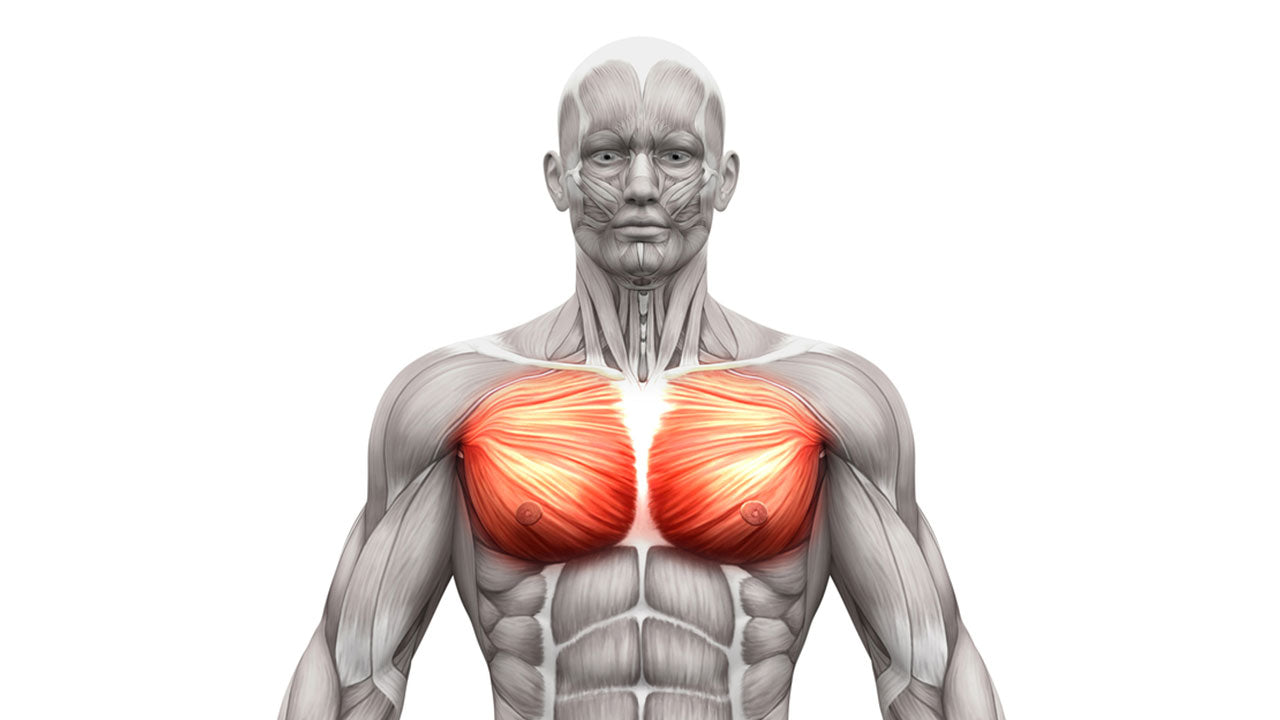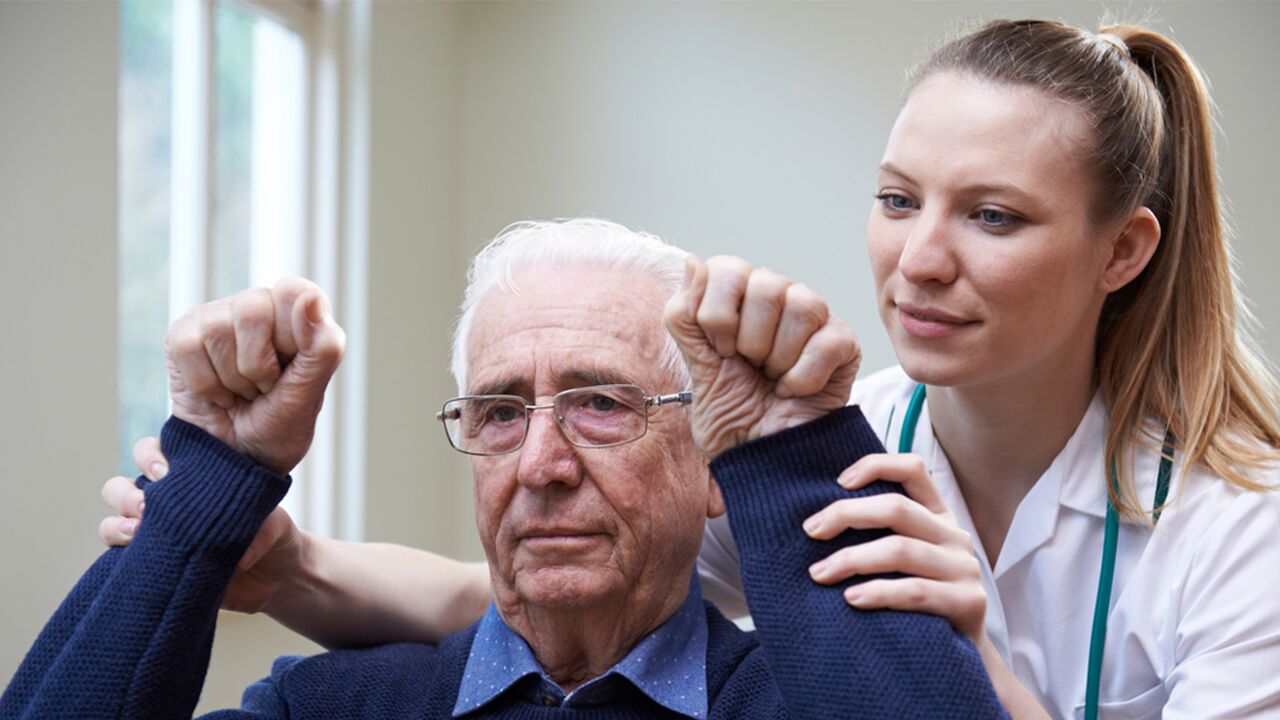Pulled Chest Muscle: Symptoms, Causes and Treatment
 By: by Amino Science
By: by Amino Science

Straining a chest muscle can cause a sharp pain in your chest, a sensation that, if it's anywhere near the heart, may well scare people into thinking they're having cardiac issues. While a pulled chest muscle is not as serious as a heart attack, it is nevertheless painful and not as easy to pinpoint as, say, a pulled hamstring.
Your chest muscles are responsible for supporting your upper body and for helping you breathe properly, and can have a negative impact on the health of your back if they're not in optimal working order. This article discusses the symptoms of a pulled chest muscle, common causes of the strain, and different treatments you can try to find the cure to what ails you.
The Muscles of the Chest
The major muscles of the chest are the appropriately named pectoralis majors, the fan-shaped muscles that go from your armpits to the center of your breast bone (sternum). These muscles help move your shoulders and keep your arms attached to your body.
The pectoralis minor muscles are smaller triangular muscles under each pectoralis major. They run along your upper ribs (just below your collarbone).
Then there are your intercostal muscles, which run between the ribs and help form the chest wall. They expand and contract your chest cavity to allow for the inflating and deflating of your lungs as you breathe. Straining muscles in this area may make breathing more laborious. As much as 49% of chest pain experienced by people comes from what is known as intercostal muscle strain.

Symptoms of a Pulled Chest Muscle
Muscle strains occur when any muscle is overly stretched or torn, and each one needs care and rest to repair itself. The symptoms of a pulled chest muscle may include:
- Acute muscle pain (a sharp pull)
- Chronic muscle pain (a dull ache)
- Pain during breathing
- Swelling
- Bruising
- Muscle spasms
- Difficulty moving the area
If this pain comes about suddenly due to strenuous activity or exercise, it's recommended that you seek medical attention, as it may be more serious than just a strain.
Chest pain is an emergency if it is also accompanied by dizziness, fainting, sweating, a racing pulse, fever, sudden sleepiness, unexplained irritability, or difficulty breathing: these are signs of a heart attack and should be treated with the utmost seriousness.
Causes of a Pulled Chest Muscle
If your heart is not involved in the chest pain you're experiencing, then you may well be looking at a strained or pulled chest muscle. This can come about from overuse, from heavy lifting, or from sports like tennis, rowing, golf, or gymnastics, which call for repetitive motions of the upper body. The other common causes of chest muscle strain include:
- Lifting while twisting (like taking boxes on or off a shelf)
- Reaching above your head for extended amounts of time
- Repetitive sports motions
- Skipping warm-ups before sporting activities
- Contact injuries from sports, accidents, or falls
- Muscle fatigue from overuse
- Hard coughing or sneezing during illnesses
Keep in mind that certain people may be more at risk of straining their chest muscles. For example, older adults vulnerable to falling injuries have a corresponding higher risk of pulling a chest muscle. Athletes are at high risk due to the nature of competitive playing. Those involved in car accidents also have a higher rate of chest muscle injury, sometimes from the safety devices involved in a vehicle (like seatbelts and airbags in cars).
Children have the lowest risk of experiencing a pulled chest muscle because of their higher flexibility, which is why it's always important for us non-children to stretch properly not just before sports, but before any strenuous activity. Basically, break out the yoga mat before you rearrange the living room furniture to repaint the walls: it might save you from being sore and achy the next day (or for the rest of the week).
Diagnosing Chest Pain
Since it's easy to suspect pain in the chest area as a potentially life-threatening issue with your cardiovascular health, a visit to the doctor may be in order. Rest assured: it's not a waste of anyone's time, because depending on the severity of the injury, a pulled chest muscle could lead to chronic back pain and may need a physical therapist to fully remedy. A doctor may first rule out heart disease or other medical conditions (like broken bones, which may call for an X-ray) as the cause of your pain, and then conduct a physical exam to evaluate the severity of the sprain.
Other Possible Causes of Chest Pain
It's important to seek medical advice when you're experiencing chest pain, because other causes may include:
- An anxiety attack
- Costochondritis (inflammation of the cartilage around your ribs)
- A peptic ulcer
- Acid reflux
- Pericarditis
- Angina
- Pulmonary embolism (a blood clot)
- Aortic dissection (a tear in the aorta)

Acute vs. Chronic Muscle Strains
If your pain is indeed caused by a pulled muscle, the doctor will first evaluate whether your muscle strain is acute or chronic.
- Acute: An acute muscle strain arises from direct injury or trauma due to an accident or fall.
- Chronic: Chronic strains are those caused by repetitive motions, whether they're movements from your job, from a sporting activity, or other tasks you perform regularly (like picking up your kids).
The doctor will then likely assign a grade to the strain according to the level of severity.
- Grade 1: The first grade is the lowest one, affecting less than 5% of the muscle fibers.
- Grade 2: This is a moderate-grade tear signifying partial muscle rupture or loss of strength.
- Grade 3: A high-grade tear entails complete muscle rupture and may require surgery to properly repair.
How to Treat a Pulled Chest Muscle
The first and standard response to a muscle strain anywhere is RICE: rest, ice, compression, and elevation. How does that work for your chest?
- Rest: Cease activity for at least 2 days after your injury, and if when you return to light activity you still feel pain, rest some more.
- Ice: Apply an ice pack to the strained area for 20 minutes, 3 times a day to reduce swelling, inflammation, pain, and soreness.
- Compression: If it's possible, wrap an Ace bandage to stabilize the area, but be sure to leave it loose enough to allow for circulation.
- Elevation: As you move around throughout the day your chest is already elevated, but what about at night? Sleeping on an incline (a soft wedge or stacked pillows) or in a recliner can help.
If your doctor sends you home with general advice, you may choose to use nonsteroidal anti-inflammatory drugs like ibuprofen to help alleviate the pain. This should be fine as long as you follow the instructions and don't mix them with any other medications—ask your doctor directly if you have any hesitations or questions about taking painkillers. Ask also about dietary supplements that can help you rebuild and heal muscle faster, like amino acid supplementation.
Heal is a doctor-developed amino acid supplement proven to improve physical strength and function as measured at 6 weeks post surgery. You can learn more about how Heal works here.
For chronic strains, better treatment may involve wearing braces at work or while sporting, attending physical therapy, or changing your exercise routine to build strength in the surrounding areas.
For severe tears, if surgery is suggested, discuss your care and concerns directly with your medical team and surgeon. While light strains may be brushed up with a little rest and self-care, chest injuries that limit your breathing could put you at greater risk of a lung infection, so breathing exercises may be advised and are easy to perform at home.
Recover Faster with Amino Acids
Amino acids are the nutrients that make up our cells, build up our muscles, and provide us with sustained energy throughout the day. Not only do they help our muscle tissues heal faster after a strenuous workout, but they also offset the physical stress caused by pulled muscles, strains, other injuries, and even surgery.
When your body is in need of some TLC, amino acids help by:
- Building muscle and other life-supporting tissue
- Decreasing inflammation in the body
- Strengthening the immune system
- Generating chemicals that optimize the function of vital organs
- Contributing to multiple metabolic processes
Through years of scientific research, The Amino Company has developed the precise ratio of amino acids needed to help you recover faster and stronger from surgeries and injuries like a pulled chest muscle. Click here to find out more about this clinically proven and tested Recovery Blend.
Puff up Your Chest with Pride
Depending on the severity of your injury, you may be able to return to physical activity quickly, right back to the bench press. However, if returning to normal activity continues to cause pain, you may need a longer recovery period for complete pain relief.
To prevent future muscle strains, be sure to warm up before exercise or strenuous activity, be careful when lifting heavy objects, climbing or descending stairs, or lifting weights, and above all listen to your body when it twinges or aches. No one knows your body and its limits like you do, and becoming aware of an injury before it becomes chronic can save you from a lifetime of pain and complications.

Up to 25% off Amino
Shop NowComments (0)
Most Craveable Recipes




 833-264-6620
833-264-6620



















